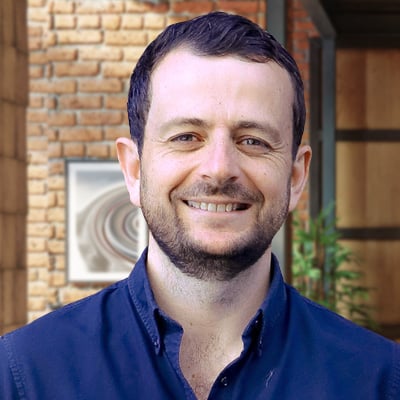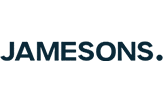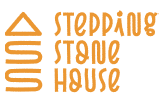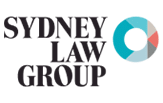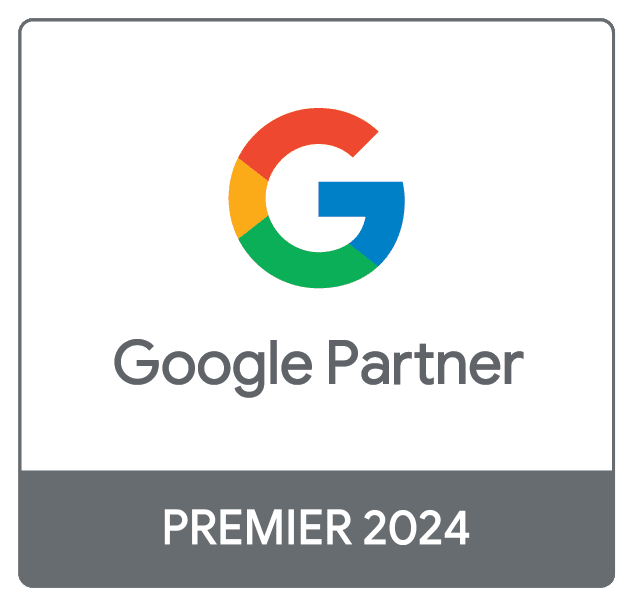Advice for Marketing Graduates Breaking Into the Industry
Episode Description:
Whether you’re in your later years of university, or you’ve graduated and you’re on the search for your first full time role. Ryan Bonnici shares his experience working for Microsoft, Hubspot, and now CMO at Gympass, while giving practical advice on how to land your first marketing role and excel in the industry.
Key Takeaways:
- Ryan’s experience in the marketing industry.
- How to show your potential in interviews without industry experience.
- What employers are looking for when hiring graduates.
- Offering criticisms about the company’s marketing function you’re interviewing for.
- The list of skills that all marketers shoud have for any role.
- Know the single metric you need to be hitting to be successful.
- When’s the right time to leave a workplace.
- The value in specialising in a certain aspect of marketing.
Featuring:
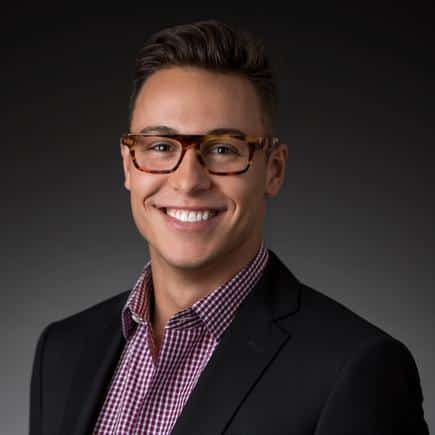
Ryan Bonnici
About the Guest:
Ryan Bonnici was awarded 26th place on World's Most Influential CMOs in 2020 list by Forbes (up from 41st place in 2019). He is currently the CMO of Gympass, an employee wellness benefit that offers unlimited access to the world's largest network of gyms, studios and activities. Ryan has extensive experience across B2B and B2C marketing and sales development, which has led to a strong understanding of the processes behind the job, refined interpersonal skills and an advanced understanding and track record in achieving strong positive return-on-marketing-investment and business growth.
Follow him on LinkedIn, or go to the Gympass website.
Podcast Summary: Advice for Marketing Graduates Breaking Into the Industry
Named one of Forbes World’s Most Influential CMOs, Ryan Bonnici shares practical tips for graduates new to the marketing world.
Starting your marketing career
Entering the professional marketing world can be daunting, but having a roadmap can make it less so. From crafting standout resumes to acing that all-important interview, here's what you need to know if you’re starting your marketing career:
The power of cold emails
Ryan's journey included a bold move—sending a cold email to a successful blog, The Cool Hunter. By offering well-informed marketing advice, he secured an internship that wasn't even advertised. This example underscores the value of proactive outreach and the potential benefits of putting yourself out there.
Having the right attitude
When hiring graduates, employers can’t question what they’ve done, because, typically, grads have no experience. Instead, employers assess your potential - how you think about things, how well you work with others, how you think on your feet, and the like. When Ryan and his team are hiring juniors, they want to know if the applicants have grown something - a social media following, a blog, an Etsy store. They want to know if the applicant is showing interest in marketing tools relevant to the job. Research the company and your interviewer and form an opinion on their content, marketing assets, and website. This shows initiative and gives you a better chance of being selected.
Internships and practical experience
Getting that first role can feel like a "chicken and egg" problem. Employers want experience, but you need the job to gain experience. Ryan suggested that practical experience, even in unpaid roles, can be invaluable. He discussed how his internship at The Cool Hunter provided hands-on learning that academic courses couldn't match. Whether it's managing a small social media campaign or interning at a startup, gaining real-world experience is crucial.
Building a memorable resume
Your resume is your first impression. Ryan recounted how his resume, with its striking design and clear structure, helped him stand out. He emphasised the importance of making your resume visually appealing and tailored to the job you're applying for. A well-designed resume is not just about aesthetics but also about demonstrating your marketing and design sense.
Crafting tailored cover letters
Applying with generic cover letters is a common mistake. Ryan advised that creating personalised, specific cover letters for each job application can significantly enhance your chances. He explained that showcasing your knowledge about the company and providing actionable insights could demonstrate your engagement and initiative.
Harnessing social media
If you want to be in marketing, you need to demonstrate your ability to market yourself. Ryan mentioned that he follows marketing professionals who actively create content and share their insights on platforms like Instagram and LinkedIn. He encouraged graduates to be active on social media, not just as consumers but as creators. Having a TikTok account with significant followers or a blog with regular updates can be as impressive as formal job experience.
Excelling in your first marketing role
Once you've secured your initial position, how can you make the most of it?
Be a digital native
90% of marketing is digital and shifting more that way, shares Ryan. He emphasised the importance of being familiar with platforms where users are, be it Instagram, LinkedIn, and TikTok. Understanding the nuances of these platforms can help you understand the nuances of the platforms and notice content that both resonates with your audience and stands out.
Cultivate a growth mindset
Having a growth mindset means always looking for opportunities to improve and expand your skills. It doesn’t matter if you’re growing a podcast, a blog, donations to a charity or another project; this shows you have a mindset of generating incremental growth. Ryan advised staying curious and being open to new learning experiences. This could involve taking on new projects, learning from colleagues, or even seeking mentorship.
Always be learning
The marketing landscape is ever-evolving with new channels, new laws, changing ad formats and so much more. Ryan stressed the importance of continuous learning. This doesn't necessarily mean formal education but can include following industry blogs, listening to podcasts, and staying updated with the latest trends. Curiosity is a trait that is appreciated in work environments.
Managing relationships and results
Professional success in marketing isn't just about hitting KPIs; it's also about building good relationships. Ryan shared how he initially focused solely on results, often at the expense of relationships. Through executive coaching and therapy, he learned to balance both. This balance is essential for sustainable success and career growth.
Choosing the right marketing role and when to move on
Evaluating opportunities
When evaluating a role, Ryan suggested looking at factors like the people you'll work with and the company culture. Working with smart, driven individuals can significantly enhance your learning and growth. He also mentioned considering the company's brand value, as having a well-known brand on your resume can open doors later. It also depends on where you are in your career. Reflect on what skills you need to get ahead in your career and consider this before taking on a job.
Knowing when to move on
Finally, knowing when to look for the next opportunity is crucial. According to Ryan, staying too long in one place can stifle growth. He suggested that around two to three years is a good time frame to evaluate whether you're still learning and growing in your current role. If not, it may be time to move on.
Continuous learning and development
Once you're in a role, how do you keep growing?
Find your niche and master it
What are the key parts of marketing that you need to grow deeper skills in? Branding, copywriting, driving value from search, and mastering paid media are some of the core pillars that you can gain expertise in, depending on your interest and skill set. It’s not important to master everything in marketing, but having core expertise in some parts and moderate knowledge in others will help grow your career.
Find and follow industry experts
Find marketers who excel in your areas of interest, follow their content, and learn from them. Ryan recommends you follow marketers who share valuable insights on platforms like Instagram and LinkedIn.
Engage in thought leadership
Putting your own thoughts and ideas out there helps you learn and establishes you as an industry expert. Whether through blog posts, podcasts, or social media updates, sharing your perspectives can be incredibly valuable.
In conclusion, entering the marketing world is a journey filled with learning and growth. From crafting the perfect resume to continuous self-improvement, there are many steps you can take to set yourself up for success. Remember, marketing is an ever-evolving field, so stay curious, be proactive, and always strive to learn more.
Subscribe to the Smarter Marketer Podcast to learn from the best marketers, leaders and thinkers in Australia. If you need help with your digital marketing strategy or creative, get in touch!
Transcript
James Lawrence: Welcome back to the Smarter Marketer Podcast. I'm here today with Ryan Bonnici. Ryan, welcome back to the pod.
Ryan Bonnici: James, it's so nice to be here with you.
James Lawrence: Very, very nice. Old friend. Yeah, it's been a while.
It has been a while. We, Ryan was on one of the early episodes. Episodes of the Smarter Marketer podcast when I was, um, beg, borrowing and stealing guests, calling in old favors. So, um, but yeah, we met
Ryan Bonnici: also like, gosh, it must've been like at least 10 years ago or something.
James Lawrence: Yeah. Well, I know when it was because You were sitting next to me when we announced that I was having my child, my first child, who's now just turned 11, so that's exactly how long ago it was.
Ryan Bonnici: Oh my god, okay, yeah, wow, that's wild.
James Lawrence: It is wild how quickly things move. You definitely didn't have a child at that point?
Ryan Bonnici: No, I've a three year old now, yeah, wow.
James Lawrence: Good time. So, for those listening who haven't listened to Ryan's first pod, or haven't heard of Ryan, I'll just quickly introduce you, Ryan. I'm Ryan.
In my view, one of Australia's leading marketing exports. So Ryan started his career in Sydney, working at Microsoft. He moved to Salesforce in 2013, where he became head of marketing. APAC moved to HubSpot in 2015, where I think you became really well known in the Australian marketing community. Went on to become head of marketing for the JPEC region.
You then moved. To HubSpot HQ in Boston in 2017. Moved into a head of global marketing role where you're responsible for brand, PR, digital and social. Your CV's insane. You're consistently ranked in the Forbes World's Most Influential CMO list. You're currently CMO at Gympass, which is a Brooklyn based 2 billion tech unicorn, possibly more now.
Welcome back to the pod. And what I wanted to talk today about was essentially just advice for marketing graduates. So for me, it's people.
Ryan Bonnici: I love this topic, James. Yeah. I'm super passionate about it. Well, that's why, that's why
James Lawrence: I, that's why I hit you up Ryan. Cause I know you are. And we kind of touched on it in the first episode, but I think you're a brilliant marketer, but you've also done incredibly well strategically making decisions in your career.
Ryan Bonnici: Hey, marketing yourself as well, right? Like I'm excited to,
James Lawrence: yeah, totally. So I think for me, you could be at university in the last couple of years of a marketing degree or a comms degree, wanting to forge that, that career in marketing. Um, you could be a grad, you could be one or two years out, may or may not have found that first role.
But I think just career insights from yourself, what's worked, what hasn't worked, what you've seen other marketers do. I would like. Jim Parsons, how many marketers do you have in your team at the moment? Um, I lead a team of
Ryan Bonnici: 350 people.
James Lawrence: Um,
Ryan Bonnici: and not all of them are marketers though, but a good 150 are.
James Lawrence: Yeah.
James Lawrence: So just to give some perspective to, you know, your conversation, like you've come across literally thousands of marketers, right? Over the last 10 to 15 years. And yeah,
Ryan Bonnici: and I've definitely like being, you know, I've been a part of like one person marketing teams, like, five person, 10 person, 30 person. So like, I think sometimes like getting advice from folks that are just like managing huge teams, it's like a very different skill set.
Ryan Bonnici: And it was, I, I'm excited to speak like more specifically to like those early days, but that wasn't too like long ago for me. So it's still very top of mind. As I was thinking about this, I was like, wow, there were lots of little things that I haven't like thought about that I did or didn't do, but I was like, I was pretty deliberate.
James Lawrence: Hence wanting to get you on, because I think you have done a great job of strategically making the right decision at the right times. And I think it's really hard. I think it's hard to know when to, when to keep doing what you're doing, when to jump ship, when, you know, how to view your career in terms of different experience.
James Lawrence: So maybe let's just jump into your first couple of roles and, you know, how, how you went about it. And I think just advice on getting that first role. It's kind of a broad question. Yeah.
Ryan Bonnici: So maybe like just to start like I was like one of those like weird kids again like just knew they wanted to be a CMO when I was like Eight or 10 or something like that.
Ryan Bonnici: I really have no idea why, because I didn't know anyone in marketing. No one in my family did that. But for me, what the journey looked like kind of like in the first few years. So I graduated high school in 2006, started university at Sydney uni in 2007. I did like a bachelor com liberal. So I was doing marketing, psychology, international business.
Ryan Bonnici: It was really good combo of things that I really liked. It's like, to me, it was fascinating, but also paired really nicely with marketing. Um, and then international business is really relevant to, I did one year of it and I kind of burnt out, to be honest, like I'd worked really hard at school, got really good grades and then year one of uni, I was like, ah, I'm done.
Ryan Bonnici: I need a break.
James Lawrence: Yeah.
Ryan Bonnici: During the holidays, applied for a job at Qantas, got a job with them as an international flight attendant. Did that for two years, full time, saved up money, bought a house, et cetera. And like, it was always a short term thing. And then like after two years, I was kind of like, okay, like I need to get back to university.
Ryan Bonnici: And so I transitioned to being part time at Qantas. And then I went back to, I think I was full time at UCED again. During this period, it's a bit of a blur, but I transferred to London School of Economics. Cause they had a remote program that you could do, which UCED didn't have a remote program. And so I started.
Ryan Bonnici: I did one semester at London School of Economics and then I struggled to do that while flying. It was hard in person, so transferred back to UCEDD. And then, I think I did like my second year at UCEDD, and then I worked with the counselors at the university who like kind of help you find grad jobs, like internships and things like that.
Ryan Bonnici: And I did an internship with Hutchison Wampoa. Um, which I think owned Vodafone or does own Vodafone at the time, just for, again, like a week or something. It was an interesting experience. Anyway, Microsoft then was hiring. They were doing a pre grad program at Microsoft. They brought in, I don't know, a few hundred folks, um, there for a full day of kind of like group style interviews.
Ryan Bonnici: And then it kind of kept getting smaller and smaller. And eventually they chose, I think, Half a dozen or eight of us or something like that. Actually, you know what? Sorry before that even I got a job at the cool hunter Um, so like I finished I was still flying a little bit, but I was like mainly doing university and this is one of the things I wanted to talk to you about too is it's like You can apply for jobs that don't exist.
Ryan Bonnici: So like I was really passionate about the cool hunter. It was a blog run by this really innovative, creative guy called bill based in Melbourne, huge international audience. It was the cool hunter. net still around now. And I loved it. And so I sent him a cold email. I literally was like, look, love your site.
Ryan Bonnici: I have some advice for you though. I think you could do some things better. And I told him that over email, I was like, I think you could do these things better in your marketing. You're not really doing e commerce, blah, blah, blah. What is interest? We met, had coffee, and then I joined him as an intern and started interning with him a few days a week.
Ryan Bonnici: And so that was like my first real job. It wasn't paid as far as I recall, but again, it was like me able to get hands on. And I think that's one of the hardest things as, as like a grad or even just pre grad is, yeah, you know, all this stuff theoretically, but the theory is kind of useless if I'm completely honest, like it sets like a foundation up.
Ryan Bonnici: But I don't think I've used the found, I don't think I've used any like hard skill that I learned in, in the marketing part of university ever really, rather the four P's of marketing, like that's just kind of, you learn things so theoretically and the practical part of marketing is very different. So I started working at the Quons up and then I kind of got that job at Microsoft.
Ryan Bonnici: And
James Lawrence: do you think that helped you get the job at Microsoft? Like, do you think having had practical experience on your CV? It
Ryan Bonnici: did maybe. I mean, I was, I think at that point in time, I was getting pretty good grades in marketing. I think, and maybe that helped, that helped me get into the interview at Microsoft.
Ryan Bonnici: And then to be honest, I think like when it comes to hiring grads or pre grads, they don't have experience, right? So it's really, you can't question what they've done. You can only really ask them questions to assess their potential. So how do they think about things? How do they connect with others? Are they inquisitive?
Ryan Bonnici: And so I'm sure the call hunter played a part in that for me. I've always been pretty good at like selling myself in those kinds of environments. And again, to me, that's just like social skills. Like when you're in a group interview style format, right. Being able to think quickly on your feet and because again, they're not really asking you marketing questions.
Ryan Bonnici: It's really more about how you relate it to people, but
James Lawrence: Because it's really such a chicken and the egg type thing, right? In this space, it's how do you get that first role? It's like, well, you haven't got the first role, so it's harder to get it. And definitely we, when we're hiring at this kind of level, it really helps if someone's got some practical experience, like working in an office.
James Lawrence: Having had to kind of operate in that environment, have made some changes to it, you know, through a CMS or have looked into analytics or something like that versus working at a
Ryan Bonnici: pub or One thing that I look for when I'm hiring folks, right? Like, especially if they're more junior is, have they grown something before?
Ryan Bonnici: Right? So to your point, like, have they grown a social media account or a blog or like, are they Showing like interest using tools and playing with things that are like relevant to marketing. I think that's always really interesting to me when I'm hiring social media marketers, even I'm more likely to like, look at people that are actually out there creating social content that is.
Ryan Bonnici: Engaging people.
James Lawrence: Yeah,
Ryan Bonnici: really funny. I actually started following this woman today on Instagram. She's hilarious. I don't know where she lives somewhere in the US. She sent me a DM straight off and she's like, Oh my God, I applied for a role at like gym class and I didn't get it. And I was like, wait, hold up.
Ryan Bonnici: Like we would totally hire you. Here's my email address. Reach out to me. Like I, people that have done something. And to your point, it doesn't have to be a job. You can just start marketing a product, create content, like create a podcast, like all of these things. Showcase passion. They showcase kind of like taking initiative and, and then, you know, if you can articulate and speak to how did you decide what topics you wanted to create content around and how do you think of the analytics of the podcast?
Ryan Bonnici: What channels drive more listenership? Like that's all marketing.
James Lawrence: Yeah. And I was kind of thinking just getting that, like, similar to you getting that cool Hunter role, whether, you know, and hopefully it is paid. I'm a big believer in that, but yeah, thinking now to stuff we've hired at that space, like, yeah, one guy in our team had quite a significant TikTok following and spoke heavily to that in our kind of, in that recruitment round.
James Lawrence: And we're like, yeah, it shows that you understand. And it could, it
Ryan Bonnici: could even, it could even just be like them critiquing your brand. Right? Like, what you could do differently, and I, I think it's funny, I think sometimes, like, candidates don't realize that, like, your job, if you're going to come and join my company, my team, Like your job is to make it better, right?
Ryan Bonnici: So like, I don't want you to tell me all the things that are great about my marketing. Like I, I probably already know that. Like tell me the things that could be better. My approach when I'm like interviewing for roles, and then maybe it's probably less in this niche specifically right now, but a little bit will be like, here are all the things that I'm noticing that I think you could be doing better.
Ryan Bonnici: There's like opportunity here. Like you don't have like a hovering call to action on your landing page. There's too many call to actions on your landing page. All of those things that you don't need to, like, have experience to kind of go and read about conversion rate optimization of a website. And then apply what you learn to the person, company, service that you're applying for to show that skill set.
James Lawrence: Any other advice in terms of how to get that first role? Like what are you looking for in a CV? What are you looking for in a group? I
Ryan Bonnici: don't think there's like any right way to get it, right? Like there's a lot of different ways. You know, I think we talked about the idea of like if you can't market yourself, like how will you market their product or service, right?
Ryan Bonnici: So like for me, for example, I had a really beautiful resume that I built. I think I went to the internet, looked for inspiration, and I remember it was like a two pager and it was like red, cool fonts. It was really slick. Like even now when I open it up, I'm like, damn, that was a good resume. Like I obviously don't, I don't really, resumes.
Ryan Bonnici: I don't feel like you are used these days. Like, or maybe as you get more senior, it's more just like your LinkedIn profile. But I think, you know, for these kinds of roles, they still are. And so it was a really slick resume that caught people's attention, right? That's literally marketing stroke, catch someone's attention, be memorable.
Ryan Bonnici: There's marketing 101. And so like I wanted, Me to be memorable, you know, my questions to be memorable. I want to be my resume to be memorable in today's world. You know, you need to think about your social media profiles too, right? Like, yeah, you could be the person that like completely makes everything private, which will not hurt you, but it won't help you at all.
Ryan Bonnici: Right. Or you could choose to be the person that's fully public. But actually has curated a really interesting content, audience, angle, opinion, thought you choose, like, and depending on who you are as a person, whether you, whether that is going to be one of your superpowers, or maybe it's something else is your superpower, right?
James Lawrence: Yeah. And in terms of the social media profiles, I think you need to assume that a prospective employer will absolutely look at your Instagram, your Facebook. So if there's content on there, which is likely to deter someone, then just. Be mindful of that fact. Would you agree with that? Right?
Ryan Bonnici: Yeah, I mean, for sure.
Ryan Bonnici: To me though, that's like the downside of it, right? Like I'm thinking more like the upside. Yeah, for sure. Like you can use it to your advantage. You can again also differentiate from everyone else that's gone private. You could actually be unique, but that also could hurt you depending on the company that you're applying for, right?
Ryan Bonnici: So it's Personalizing and knowing who your audience is. Yeah.
James Lawrence: And I think we're assuming you've got a good LinkedIn page, good, good professional photograph. Yeah,
Ryan Bonnici: like super professional, like I said, like, like done by a professional, but yeah, like something that shows some personality and. I think as well though, like when it comes to reaching out, like whether you're like responding to a job ad or reaching out kind of cold, like I did with the cool answer, you need to personalize your message, right?
Ryan Bonnici: So I remember a period in time when I was, you know, maybe a grad. I remember applying with the same resume to everyone. And I remember it not working for a period of time. I would, you know, we say in email marketing terms, it's like spraying and praying, right? I'm just going to spray messages, emails everywhere and like pray someone engages like versus it probably takes you as long to do that as it would to take and write, write five really good cover letters or cold emails to people that are really relevant to the role and really show your passion and why you're the right fit.
Ryan Bonnici: Right. And if you're not the right fit, then, you know, then maybe keep looking and find ones where you are the right fit. Um, I think that's huge, right? If you're a graduate and you don't have a whole lot of experience showcasing how passionate you are is key. Like I remember someone who. Applied for a job at HubSpot for me once, like created a website.
Ryan Bonnici: I think he created a website. It was like, there's someone that did this in Boston that I'd heard about. And then there was also someone in Sydney who did this. Like, and I can't remember if I'm getting the two stories confused, but one of them created a website. It was like hiremehubspot. com and another one, which I think was the Australian one did something where.
Ryan Bonnici: I think that they might have like run paid media ads on my name and told me to Google it or something. I Googled it, took me to a landing page or something like that. I can't really remember. It was a while ago. But I remember being, and I hired that person. I was like, fuck, like, look at that. Taking initiative, using marketing, paid media, like landing pages, like.
Ryan Bonnici: Hell yeah, there's so much I think you can do there to get those bigger roles like the bigger company logos I think it definitely helps like either you need really really good grades I think to just get in the door or you need to have some like other experiences that maybe credential you so that you can kind of like The respect to to go into one of those companies I
James Lawrence: think it's a it's a really good perspective because Rockets a smaller business, right?
James Lawrence: And we but we'll get 100 to 150 applications for this type of role, right? If we're looking at a grad role in production or client services or something like that. So the idea that you can send off a generic cover letter, unless you're exceptional or an exceptional. No, exactly. Even
Ryan Bonnici: then though, James, I reckon it's hard to show that exceptionality quickly, right?
Ryan Bonnici: In a resume. And that's where I would say, like, so like when I really care about someone, I really want to connect with someone. Like, I will Google their name. I will YouTube their name, I will Spotify their name, I will find every piece of content they've ever said, and I will listen to it, read it, watch it, cause I'm like, if I'm gonna meet you, if I'm applying for a job with you, James, like, I wanna know, like, who is James Bond?
Ryan Bonnici: Like what makes him tick? Do I even want to work for him? Is he a jerk or is he a really wise person? Right? Like putting in that time up front so valuable to decide if it is a good role in a good company and a good boss or if it's not right for you, right? And I think it's like a difference between like researching and like being genuinely curious For me, it's typically more like I am genuinely, I'm like obsessively curious about people and everyone that knows me knows I will ask them very unusual questions, provocative questions like I don't really have a filter, like getting to know a company or the people you're going to work with and then finding those mutual points of connection, emphasis on authentically mutual points of connection then helps it all kind of progress.
James Lawrence: Yeah. I'm sitting on the other side of the table if you're ever applying at Rocket. I will ask that question. It's, and I, I'll come into an interview. I'm busy. I might've looked at the CV, might not have, but I'll always say, what do you know about Rocket? And I guess to me, it shows that someone is actually interested, first of all, in the role, they're not just shopping around, they've actually taken the time to read up about us, look at who we've worked with, the point before around, here are some things you can do better, like that's incredible, right?
James Lawrence: It actually shows if I get this person into the team, they're actually going to do that all the time. I can't
Ryan Bonnici: tell you how many people I've interviewed over the years, like I don't interview as many tactical folks these days, because my team does that more so, I would say, but I can't describe how many folks I've interviewed where like you ask them Yeah, that question or they're applying for a content marketing role or something And they don't have a strong opinion on my blog or my podcast I'm, like are you serious?
Ryan Bonnici: Like literally you're applying for this role. All of the stuff is out there If you want like research for an interview, you're going to be the worst employee ever 100%. Um, And i'll i'll literally say I won't say that to them in that way, but i'll literally say hey You I'll obviously ask some more questions in like five, 10 minutes in, if I can tell it's not right.
Ryan Bonnici: I'll just, I'll stop the interview. I'll like thank them for their time. I'll let them know like why we're not proceeding. And the response actually is always really positive I think because people are used to just kind of continuing the interview and then always getting a no versus being like, I'm actually telling you what you did wrong and now you can learn from it the next time.
James Lawrence: And it's better to have an opinion that might not be right because there is a tolerance at this level that you're a grad and. You've never worked in this environment before, or you've only worked for six months somewhere. So have an opinion, try to back it up, you know, with, with data or insights.
Ryan Bonnici: My like, what's that saying?
Ryan Bonnici: It's like strong opinions held loosely, right? Like, so if I'm going to say something, I like, I'm passionate about it. And I'm always open to new information to change my mind. But yeah, you're totally right. Like I want like, cause that shows hunger. It shows like conviction. It shows confidence.
James Lawrence: Yeah. That's it.
James Lawrence: Right. I think that's really, really good in terms of just that you're obviously, um, big client side. I'm agency side. I think kind of such commonality there with kind of what we're looking for in that kind of, at that juncture in terms of, um, The most important skills for marketing graduates to develop like, I think it'd be good to talk around, let's pretend you've kind of got that first professional job you kind of in three days a week in a marketing environment, or you're in five days a week in that first role post graduation, like aside from actually just doing your job in terms of becoming a better brand marketer or a better PPC person, whatever it is, like what, what should you be looking to develop in that, in that first kind of year or two?
Ryan Bonnici: If I start high level, I think like any role, any job. I think like you're really just doing two things. Like you're leading people and you're leading projects, leading people. It doesn't necessarily need to mean you're like a leader, like a manager, but like, you need to work with people. You need to get work done through people and then like leading projects, right?
Ryan Bonnici: Like how you get work done, how you, and both of those things in my mind, drive like outcomes and results, which is what your boss cares about. Yeah. And so, yeah, if you drive outcomes and you're a jerk that won't last very long. I'm. I suppose if you're really kind and you never drive outcomes because you don't know how to lead projects and also no one will want to work with you.
Ryan Bonnici: Um the high level to me It's like really about like people and like projects and like the people the project is kind of everything from The function of marketing or the role that you're doing to how you run that process to how you drive innovation, et cetera. So just anyways, it's like setting like foundational like thoughts in my mind.
Ryan Bonnici: I think like specifically though, like if you want to get into like the role as opposed to like, let's leave people management to the side, maybe for now, because this is like, I don't think this, these people will be in people management roles. The highest level skills, I feel like you need to be a digital native.
Ryan Bonnici: 90 percent of marketing today is digital and it's shifting more and more that way, maybe more than 90 percent even. So I just think like you need to be a digital native. You need to live and breathe digital. You need to be on the platforms where consumers are. You need to use Google, you need to use Instagram, you need to use TikTok because all of that will help you inform how you can then in the future leverage those tools, right?
Ryan Bonnici: You start to notice commonalities on platforms. You'll start to see like a certain format of posts on LinkedIn that always trends, right? It's like the long form, like LinkedIn posts where there's like a space between every line, you have to click to show more, like that works. It kind of games the algorithm because like starts with a provocative statement.
Ryan Bonnici: The person wants to find where the story ends, they click show more. That tells the LinkedIn algorithm for more. So like, again, you need, like, if you're not on LinkedIn, you would never know that. Similarly, on like Instagram reels and TikTok, like there are certain formats of like green screen person talking with a, like a checklist behind them.
Ryan Bonnici: And there's thousands of different formats that work, right. But if you're not like in the platforms and like living and breathing them, then I just don't think you'll ever be a great marketer because even if you don't want to use it for yourself personally, at the end of the day, you're, you're going to be marketing to people and people are on those.
Ryan Bonnici: platforms. Um, even, you know, if you're a B2B company, B2B content typically is harder to make work on social, but if you create entertaining content for your audience, right, for HR, like we don't create logical, rational content on social media and YouTube about like, how to be good at creating job descriptions and, you know, what are the most important wellbeing benefit.
Ryan Bonnici: That's fine. We have blog content around that, but for us, Instagram, TikTok, it's more like humorous content for HRs, like to kind of empathize with them. And anyways, so digital native, I think is the first one. Second one to me is like growth minded.
James Lawrence: Yeah.
Ryan Bonnici: So you need to just have a growth mindset. Thinking about growing something, right?
Ryan Bonnici: So we talked a bit before about like, have you grown a podcast? Have you grown a blog? Have you grown an email subscription? Have you grown a YouTube channel? Did you grow donations for your local charity? Like it doesn't really matter. Point being is that like, you have a mindset that's thinking about like incremental growth, such an important skillset.
Ryan Bonnici: I think like the third one for me is like, just, you need to be someone that's like always learning. I think that's so especially true in the marketing field. There's some parts of marketing that like never change, right? Like good storytelling, good copywriting, good branding. Like there are some like kind of foundational things, but the problem is though that like the medium really dramatically impacts the message.
Ryan Bonnici: Yeah. And so, you know, in a cinema before a movie shows, People are in their seats, right? Like they can't leave at that point in time. So you have 30 seconds or longer, maybe to communicate a story, start to finish. On Instagram, you have maybe like. One and a half seconds to three seconds to capture their attention before they scroll past.
James Lawrence: Yeah
Ryan Bonnici: What of the message you fit at the start is so much more critical on those kinds of platforms So if you're not there, you kind of can't really learn how to adjust those things So I think like Being a forever learner, like learning the foundations, then understanding how to apply the foundations on the channel, the medium, et cetera, is like so key.
Ryan Bonnici: And I'll often ask people, right, when I'm interviewing them, like, what's one of the most recent books that like really made you think or caught your attention or that you really loved. And I'm not looking for them to say a marketing book or anything like that. I'm gin, I'm genuinely curious at like what they are curious about.
Ryan Bonnici: We
James Lawrence: ask exactly the same question and Um, would you just use the word, which is curious? What is, what's something we're looking for in, in all people that work for us? We've got a channel curiosity culture. It's something which as an employer, we fight. It's not something we feel that we can really breed in people.
James Lawrence: It's something that people have or they don't have. As you said, like a lot of the theoretical things that you might learn at university are often just not applied when you move into a professional context. And to succeed in marketing, you just have to have that mindset of, Of curiosity and forever learning, right?
Ryan Bonnici: Totally do. And also, I think, sorry, I don't know if we touched on this, but just marketing as an industry is like evolving so quickly, right? There are new channels coming out every few months, every few quarters. Like, the policies and the laws around it are changing. But I'm not like, much Bigger believer of like, yeah, go out there, find marketers that are like practitioning.
Ryan Bonnici: They're actually doing the skill that you want to learn, read from them, listen to their podcasts, find a brand that you love. I always think, and then like find the marketers behind the brand, search their name on Spotify and all the different platforms and then learn from
James Lawrence: them. And then what about within a corporate environment or whether it be a small business or a big business?
James Lawrence: Managing, I hate the term if it's being used in the wrong way, but managing up, managing, you know, with people within your own team, being visible, all of those more practical types of things. Like how do you set yourself up for career success? Right. Like how do you go from being the intern at the cool hunter to managing a team of three 50 in New York, you know,
Ryan Bonnici: to paint a picture.
Ryan Bonnici: Like I was always very driven, super curious. Like I wasn't good at. Playing in a team when it came to marketing and work and then more just that like I was willing to put in extra hours sometimes when others wouldn't and so if you're the only one willing to do that then you kind of need to depend on yourself more and that worked really well for me as an IC.
Ryan Bonnici: I was able to drive great results and I think it's results ultimately that help you progress up the ladder. Right. So if you're asked to deliver a, deliver a plus 20 percent or a times two, like I was never happy with just delivering 100%. I always wanted to deliver, deliver significantly above that. Um, because to be honest, this is something that when I'm interviewing candidates, I always ask them like, what is the metric that you need to crush to go to your boss and say, I deserve a raise?
Ryan Bonnici: So like, I'll always ask that in an interview, because if they don't know that metric, I'm like, woof, like, you're not going to work well for me because like, you need to know your metric. If I ask you about it, you need to be able to deliver. But similarly, like I was, would always know what metric mattered most to me and to my boss.
Ryan Bonnici: And then I would always overachieve on that. And I was be very comfortable going in to a conversation and say, Hey, I just delivered two X, what my peers delivered, um, in similar roles in other countries. I'm being paid less than them. Like I'd like to be paid the same as them, if not more. And I would, I would get and receive that.
Ryan Bonnici: So. I kind of think the results piece was key. What I didn't realize until later, which is ironic, but I think I was over indexing results and it wasn't until I was mid to late twenties where I realized where an executive coach actually said to me, they're like, look, you need to be able to balance relationships and results.
Ryan Bonnici: Yeah. I had never thought of it in that way. And it wasn't like I wasn't trying to manage relationships and like be a great team player. But I kind of. Was very like self centered and very like focused on driving results at all costs And you know, I think I like would sometimes rub people the wrong way What did
James Lawrence: you work on to get better at the at the people stuff?
Ryan Bonnici: I mean, I think there was some like hard skills like technical skills that just like I had never learned You know, I was started managing. I think I was managing a team of 15 When I was still in like third year uni James when I became a director at Salesforce Oh I had just graduated university. Like I was the youngest director at Salesforce.
Ryan Bonnici: I don't think they knew I was still at university. I don't know how I managed to finish at the time. You know, I got that job at Microsoft. Then as I started getting new jobs, I think I was doing like two. Credits or whatever it was, a semester is like one or two subjects. It was chaos trying to manage like full time jobs and that, but I eventually did.
Ryan Bonnici: But
James Lawrence: I think if you haven't worked in a professional environment, it's very easy to just go, well, it's all about performance, but it's not right. Like so much of professional success comes from managing the relationships with your peers and, and your bosses. Totally. Totally. You
Ryan Bonnici: know, it was, it was a few things.
Ryan Bonnici: I think they taught me some like hard skills that I just hadn't learned around management. So like I would. tell people what to do versus build things together with them. I was still kind of operating in like an IC mindset and my idea might've been great for example, but like no one wants to be told everything to do right.
Ryan Bonnici: Like they have a brain as well. Like have them use their brain and. Two brains are better than one kind of a thing, right? And so that's just like a very simple example. I think the other really big thing for me too, James, was that I did a lot of, I've done so much therapy myself. My wife's like a clinical psychologist we met at university.
Ryan Bonnici: I really needed to, like, completely re engineer the way I, like, interacted with people. I don't think people would have always realized it on the surface, but from being bullied as a young kid, I was, I always kind of felt like the outcast. It was always, like, me versus them. And, and I, I think I had some, like, incorrect beliefs in my mind around things.
Ryan Bonnici: And so I think doing a lot of therapy and I guess, like, coming to terms with myself, getting to better know myself, Not being as hard on myself. Cause if you're really hard on yourself, then you're typically even harder on others. Or
James Lawrence: yeah,
Ryan Bonnici: it was a lot of different things. And I think also just time, right?
Ryan Bonnici: Like you make mistakes, you learn from them, start to pattern match. Like you start to see things where you're like, Ooh. I've been in this situation before. I remember like one time I went down the wrong path here, like the right path is to do this and I had such imposter syndrome, I felt such a need to prove myself because I was like, gosh, if I don't prove myself, like someone's going to realize that I'm not qualified and I'm sure there were roles that I was in that I wasn't qualified for and I think the net of it all was good and I was happy with what I delivered for those companies.
Ryan Bonnici: And that was all good. Like I've never ever been like let go of a bad performance or anything like that, but I, I do think that like knowing where I am now and how much more confident I am in myself, more confident I am in like silence in a room and so you learn, I think, just for a lot of experience.
James Lawrence: Yeah, I think that's, that's totally fair. Now, in terms of what I wanted to talk about was, because a lot of this has been about, How, if I'm a grad, how do I get that first role and, you know, the, the job is the prize and all that kind of stuff, but to flip it on its head, first of all, I'd like to discuss, like, what should a grad be looking at in terms of like, what is a good role and what, what are the traits or hallmarks of an opportunity that go, yeah, that's going to actually set you off in the right direction.
James Lawrence: And then second to that, I'd like to then discuss, when do you look at that next role? Whether it's internal or external, or when do you, you know, I'm on a good thing here and I should stay. Yeah, sure. There's two, two areas.
Ryan Bonnici: The people you work with are so important, right? And so I think for me, right, like whether you're a grad or whether you're like a CMO, you want to work with really smart people, right?
Ryan Bonnici: I like, I have been at places where I've been, One of the smarter people in the rooms and I've been in places where I've been one of the least smart people in the rooms And I'll tell you like I would much prefer to be like one of the like rooms where I'm the least smart, right? If you're the smartest there like you yeah, if you if you have an ego issue like then that'll be great You'll feel amazing all the time.
Ryan Bonnici: That's not really my jam. No, I like want to be learning What helps me thrive is like learning constantly. And so I always want to be around people with more experiences, different experiences, different points of view. So like, I think just the people, and I think your boss is a really important part of that.
Ryan Bonnici: You're the team that you're on and the team that you interact with is important. The culture of the company is kind of also like interconnected with the people that work there, right? Like good people, smart people tend to work for, you know, Good and smart cultures. So I think like there's like some kind of connectivity there.
Ryan Bonnici: And I think at the end of the day, it really comes down to like, what are the, like, where are you at in your career? What are the skills that you need to get to the next job in your career? Right. I think it's as plain and simple as that. And so for me, like, if I think back to. You know, Microsoft is a good example.
Ryan Bonnici: I mean, if I start there, right, like really credentialed brand name, everyone knows Microsoft. So like, I was so lucky to have gotten a pre grad role with Microsoft because it, it just like credentialed me and gave me credibility when I didn't have that. Right. Like in, you know, to use marketing speak like the halo effect, right.
Ryan Bonnici: Microsoft, good brand. I'm associated with Microsoft. I mustn't be a bad marketer if I, you know, got a job there. Um, so I think like, that's like part of it. And then it's like, yeah, what do you want to keep learning? Right. So, I mean, in your first role, I think there's just so much to learn. It's hard to like know what specifically you want to learn.
Ryan Bonnici: I think it's just, are you going to get new challenges? Are you going to learn different things? If I think of like my transition from like Salesforce to HubSpot, for me, what that was all about was I had worked for big companies, Microsoft, ExactTarget, like Salesforce, you know, I had like multi million dollar marketing budgets.
Ryan Bonnici: I would spend millions of dollars on events. And I would drive tens of millions of dollars in revenue. So like, don't get me wrong, they were ROI positive. I was kind of like, Hmm, if I want to start my own company one day, which is what I wanted to do at some point in time back then, I don't know if that's still true today, but I was like, I'm not going to have tens of millions of dollars of marketing budget.
Ryan Bonnici: Like I'm going to need to be really, I'm going to need to be a scrappier marketer, like a more ROI centric marketer. And, you know, lo and behold, like HubSpot was all about inbound, creating content, like, you know, attract people versus. You know, interrupt them. It just, it was exactly what I needed. And so that was sort of why I transitioned from like big enterprise selling to big companies to HubSpot, where we sold to SMBs, because I didn't have, I hadn't sold or marketed to that segment before.
Ryan Bonnici: And then when I went from HubSpot, you know, I moved internally from HubSpot running like regional marketing to then running Brand PR social. And that was the softer side of marketing, right? Like, so when you run a region for a software company or any kind of company, it's much more revenue centric, right?
Ryan Bonnici: Like I was responsible for driving a revenue number for the sales team, which in my mind, to be honest, and I'm obviously biased because this was my part, but I think that is the best entry point. In marketing is like the closer you are to revenue, the closer you are to the core of the business, right?
Ryan Bonnici: Cause like revenue equals customers and the customers make or break a business. And so being close to that helps you be close to decisions, be close to power, be close to. I had never had really like large scale global brand marketing experience, PR experience. So I had done those things at a regional level.
Ryan Bonnici: And so my internal transition to HubSpot for me was all about how could I round out my skills because I knew next to me, like what I wanted in my path was to see in my role. Typically CMOs are either brand marketers. Which I think is personally like the, again, I'm so biased. I think that is like the weaker function in marketing, not to say brand isn't incredibly powerful, but brand ultimately drives revenue.
Ryan Bonnici: Do you know what I mean? So I think being closer to revenue and understanding revenue, then you can understand the levers that could drive revenue and brand drives longterm revenue. like advertising demand gen drives short term revenue. And so I was kind of more on the shorter term revenue piece, but it was, you're either like brand or you're a demand market or some, there's a little bit of like a product marketing CMO too, but that's kind of more connected to brand than I would say, like demand.
Ryan Bonnici: And I knew I wanted to be a CMO, so I needed to round that out. And then I went to G2. And so for me, it was like, just what were the skills that I needed to, I guess, yeah, have enough experience to make a CEO or You know, if you're a grad, like to make the boss, the person you're going to work for, believe that you possess the passion, the grit, like the determination to do the role and to over deliver.
Ryan Bonnici: I think that's even something maybe we didn't talk about, like from like qualities or skills piece, but like around if you're someone that like doesn't give up and you like get frustrated if you don't know the answer and you won't stop until you work it out, like, That can play in your favor in some ways.
Ryan Bonnici: And then I think your other part was like, how long should you work for the company? Like how long was a grad?
James Lawrence: That's it. Because I think the theme there is very much just become like, if you want to move up into kind of a leadership type role, more generally in marketing, then you need to kind of fill in.
James Lawrence: The performance stuff, the brand stuff, and have exposure to both. Yeah, yeah, and it's
Ryan Bonnici: hard, if not impossible, to really do that at one company, I think. Like, I'm also anti that, to be completely honest. Like, if I think back to the Microsoft days, there are people that started with me, like in the pre grad program, that are still there.
Ryan Bonnici: They're probably not higher than a director level now. They've stayed safe. They've played it safe. I'm sure they've got good equity. It's comfortable. By moving externally, you get more experiences faster. But it's more, it's less comfortable, right? Like you're, you're having to go out into your, outside of your comfort zone.
Ryan Bonnici: And I think it depends how fast do you want to learn all the things to get to where you're going. I was like wanting to learn really quickly. I think like for me in a new role, typically the first six months I feel like a beginner and then at the six month mark I tend to find that's when I start to kind of really excel.
Ryan Bonnici: I've like sucked up all the info I need from the team and it's like at the six month, month part in a new role where I really start to Like really drive forward and then elevate what the team or the company was doing before. And typically for me, at least like by the two, three year mark is when I start to feel like, cool, like I've hit my goals several years in a row.
Ryan Bonnici: If you're, if you're in management now, maybe you've built a team that you were asked to do when you were joining. Cause maybe a team didn't exist or maybe the team didn't have the right skills. You need to retrain or rehire new people for me. I tend to try to like make myself. replaceable, right? So like, I want to make my team and the company where I'm at be in a place in a few years where like, I don't need to be there.
Ryan Bonnici: And that then helps me then feel good about going for new roles, or at least like, you know, showing that company that I've delivered. And then Them saying, Hey, like what other roles can we give for you? And like, that was sort of what happened at HubSpot, right? I reached that regional period in time where I had ran regional marketing for a while.
Ryan Bonnici: I wanted more that wasn't available for me regionally. And so they're like, okay, like we don't want to lose you. Come to HQ, like head up a global team.
James Lawrence: And I think that's a very personal. I think it's
Ryan Bonnici: very personal. Yeah, it really is. And there's nothing wrong with like being someone that stays at a company for a long period of time.
Ryan Bonnici: Like, I think for some people that will be dreamy. How comfortable you think of the lifelong friends you get to make, right? I feel like I have lots of friends at lots of companies, but I've not really been at any one company for more than like four years, I think four has been like the max period I've been somewhere, which I think by like today's standard, that's pretty long, but.
Ryan Bonnici: But it's not like, you know, you're 16 years at a Microsoft, which like some people will do.
James Lawrence: Yeah, that's it. And that's just because. Growth happens when you're uncomfortable, right? And the idea that you get thrown into a new environment, new challenges, new product to understand you, politics and people. And it does take that six months, right?
James Lawrence: To get to a point of, well, I actually kind of feel like I'm doing now. And then you kind of, you haven't mastered it at that point, but you're kind of being competent and it's um, but yeah, I think that's a very personal choice. Cause probably a lot of people, if they're in a culture where they feel safe and respected, then yeah, But it definitely will, um, it'll stifle growth to some extent, right?
James Lawrence: It's almost by definition. Last area I'd like to get into Ryan, just in terms of like ongoing learning, once you're in that role, like just more practically, like what are some resources or an approach to learning that you. Because I think we probably both have a similar viewpoint there where the university, how much of it actually helps us practically be great marketers.
James Lawrence: But we've talked about curiosity. We've talked about growth. Like what are some, like, how would, how do you go about continuing to keep your skills sharp?
Ryan Bonnici: To your point? Like I'm not super pro courses or university. I think again, like if you have zero base foundation, then yeah, that's going to be great.
Right. And you could get it for free or you could pay for it and it'll be more structured. I think each to their own. If you're, you know, if we're talking here, really more sort of like grads and stuff like folks who maybe already have a foundation, then I think it's more about like specialization to some degree.
Right. So like, what are the, like, what are the key parts of marketing that you're going to be deeper in? Right. Like as a CMO, you kind of go deep everywhere, but not as deep as your team. There's a few pillars in marketing where I can go as deep as my team for the other ones. I need to be like moderately deep, but.
hire people with deeper expertise. What are those like pillars that you really want to excel in and be the best at? And I think that really is dependent on, on the year, actually, to some degree. Like there are some pillars that like are forever. I don't think this is a great pillar to necessarily make your own or like brand.
I think branding is going to be something that's there forever, right? Copywriting, being a good writer. That's going to be something that's there forever. Do you want to be like really strong at how to build audience on social? Or do you want to be really strong at how to drive traffic through search? Or do you want to be a fucking master at paid media and multivariate testing and running crazy, like, you know, paid campaigns that drive.
You know, really good return on ad spend. So I think kind of working out like what parts of marketing are you interested in? I think that comes down to like, who are you? Are you like a numbers person? A creative, I think you need to kind of understand that. And then I would say, like, go and find people that excel in those spaces.
There's a few different marketers that I follow on like their podcasts that they create or their, um, like there's an Australian guy, I forget his name. Um, I follow him on Instagram and I think I have him set as my favorite. I think his name is Dane Walker. Do you know this person or know of him? Really? I think he's, I'm pretty sure he's Australian.
His Instagram page is all about branding, marketing. I'll send you the link afterwards. Um, I think it's D A I N Walker, if I recall. And I think I've DM'd with him here and there because he creates the most beautiful slideshows on Instagram. And he will teach you about a concept that might be about like why a rebrand went wrong.
And it'll be like 10 Instagram album, like slides and just really simple messaging. He's beautiful branding, really simple messaging. Like he's great. So it's like find those people and follow them and like learn from them. Listen to them. There's so many great people out there. And I think one of the best ways to find those people is sometimes to look at those like lists of top marketers.
I think like once you're getting into like the Forbes y sort of like world, those folks aren't going to be very technical. So I don't think you're going to learn very technical skills from those people. Like they're excelling because they're, they're good at like driving transformational change at their company, which is like all about people and driving risk and process.
And like, that's more of maybe what I do today than Then old me. So HubSpot, you know, was a good breeding ground of really talented marketers. Like if you want to learn sales, like Salesforce is a good place to like look at sales reps at Salesforce and what they talk about on content, right? Like, I think you kind of need to go to like different social networks, different communities, follow some of the topics that you care about.
And see who is writing about those things, what are other people sharing content for and you'll start to see names appear over and over and I think that can be a nice way to start to kind of like learn and then you might have an idea that relates to something that you saw, you reach out to that person in the DMs, you build a relationship and you know, you all start to like learn from each other and Putting your own perspective and voice out there can be another way to learn, right?
Like, for you to be able to articulate, like, maybe what you're learning, or that can be a nice way to learn, but also build your brand as well at the same time.
James Lawrence: Yeah, nothing, nothing helps you better formulate your opinion than being forced to actually put it out there in the public domain, right?
Ryan Bonnici: Yeah, for sure.
James Lawrence: Well, mate, thank you. You've been so generous with your time again today. Um, thanks a lot for coming back onto the pod and I think Organize the chat. That's always generous.
Ryan Bonnici: Likewise, mate.
